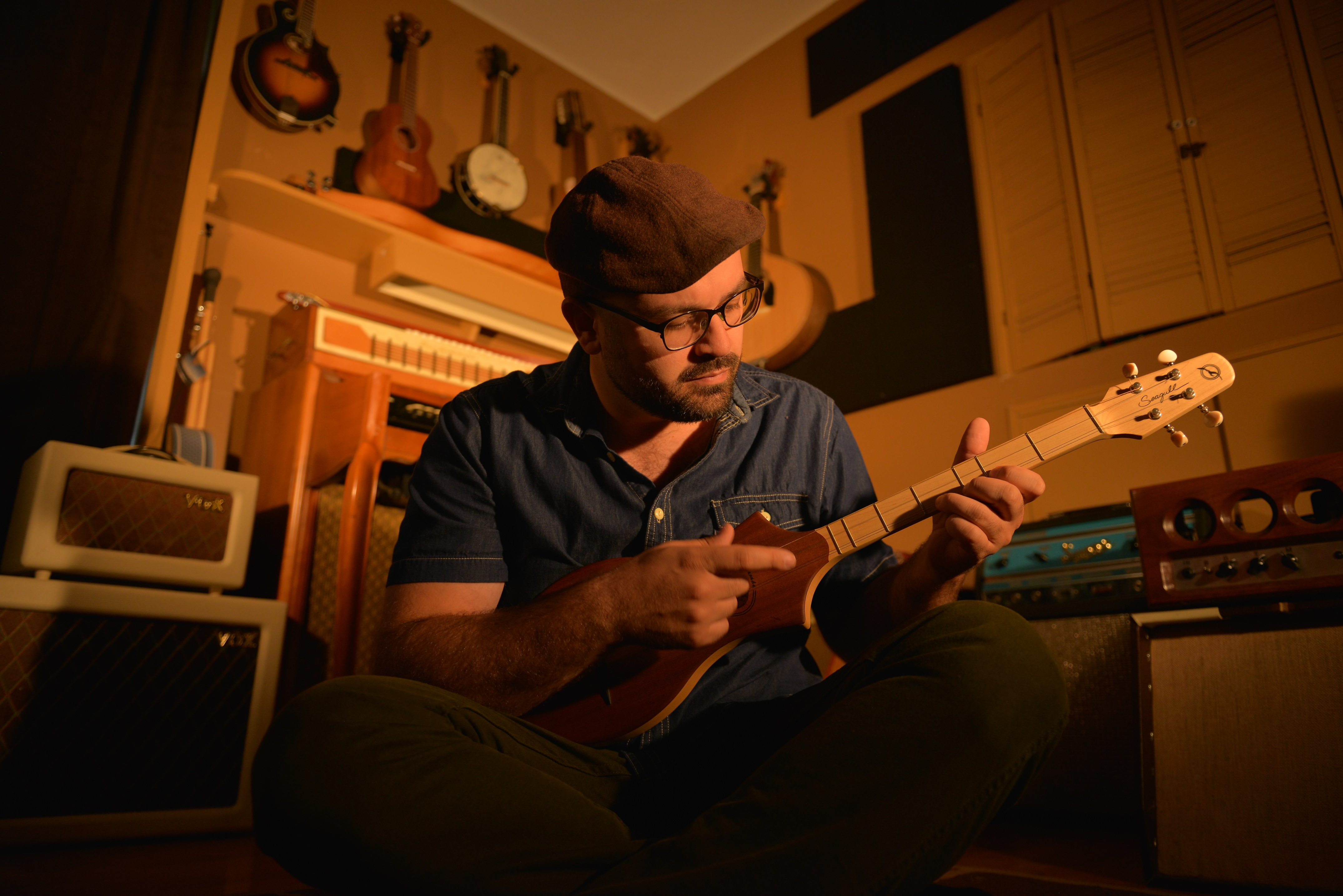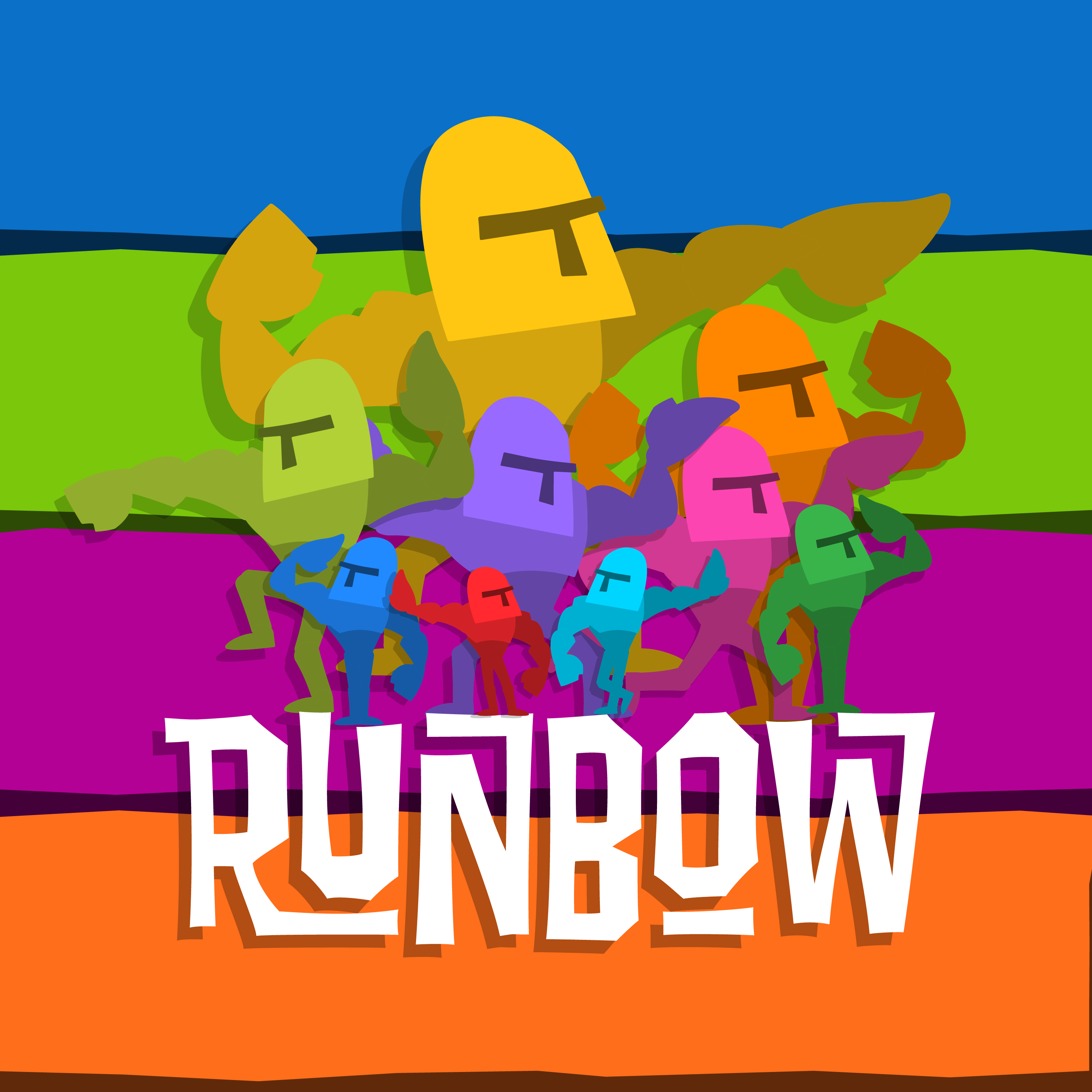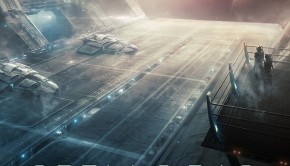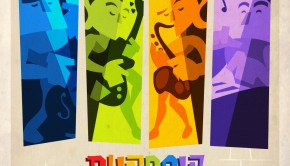Dan Rodrigues Interview: Somewhere Over the Runbow
Toronto-based composer Dan Rodrigues has been working on game, television, and advertising projects for several years. However, it’s his latest work — his unforgettable soundtrack for the Wii U’s fast-paced kaleidoscopic racer Runbow — that has given him worldwide exposure.
In this interview, Rodrigues shares the story behind scoring and releasing his breakout work. He gives rich insight into how he created Runbow‘s diverse,e xciting score. Along the way, he discusses his involvement in other projects, including children’s television shows and war simulation games.
Interview Credits
Interview Subject: Dan Rodrigues
Interviewer: Chris Greening
Editor: Chris Greening
Coordination: Chris Greening
Interview Content
Chris: Many thanks for talking to us today, Dan Rodrigues. First of all, can you tell us about your musical background? What led you on the path to becoming a game composer?
Dan Rodrigues: Sure thing! I started, as most do, with a massive love of music. This led to me pursuing Jazz and Classical Studies at Mohawk College in Hamilton, Ontario. After graduation, I spent my days teaching guitar and performing to make ends meet. I quickly realized that if I wanted to make a living as a musician I would have to explore other revenue streams. I always had an interest in writing but had never done any extensive recording or producing. My musical life had been strictly about learning the art and craft of musical theory and performance.
I decided to use those skills to audition at Berklee College of Music and take Film Scoring with a focus on video game music. Which is to say, I took every single video game music course they had available at the time because I loved it so much.
Chris: How did you go on to score your first gig?
Dan Rodrigues: After all that school, I didn’t do what the teachers were recommending. I didn’t go to L.A., I didn’t go to New York, I went back home to the city of Toronto. After some thought, it became more and more clear to me that going where literally everyone else is being told they should go, is probably not the greatest idea.
Back in Toronto I was able to find a job at The Eggplant Collective, a music production house that focuses on advertisement and television music. They took a chance on a recent graduate and in return I did the best job I could do for almost three years. It is a really busy place and I was able to write music for media almost every single day. It was a bootcamp that allowed me to really focus on my craft and do a lot of self-evaluation and learning with multiple deadlines every week. It was an experience that I wouldn’t trade for anything.
Now in the present, I decided to go freelance to focus on diversifying my workload. Essentially, I wanted to make sure I made time for video game work. I’ve been freelance for two and a half years and have been using this time to meet the talented people in the indie game scene here in Toronto and continue to work on broadcast media.
Chris: Over the years, you’ve worked on numerous commercials, television shows, and smartphone games. Can you tell us a bit about the scope of your works? What are your career highlights other than Runbow?
Dan Rodrigues: Yes, I’ve worked on every type of advertisement you can think of, from car ads to PSA’s. It’s a great way to get better at producing because you’re always writing and finishing short pieces for the pitch. In TV land, I’ve done what a lot of young composers end up doing first: ghost writing. I have also written music for Daily Planet, Bargain Brothers and Napkin Man among others. Right now I’m the composer on a hit kids show called The Next Step by Temple Street Productions and I’m looking ahead to more video game work. It has been a very diverse career so far and I wouldn’t have it any other way, keeps me on my toes and monotony at bay.
Chris: While you’ve worked as a music composer for several years, Runbow is your breakout work. Could you tell us the story about how you became involved with this Wii U exclusive? How does it feel to know the game and its soundtrack are a hit?
Dan Rodrigues: I met the guys at 13AM Games at the Toronto Global Game Jam 2014. They are a great group who came up with a genius game mechanic and a demo of Runbow in two days. It was basically a proof of concept at the time but had a lot of potential. Nintendo was able to see this potential and the Runbow ball began to roll down a steep hill! It was a great experience and 13AM Games did an incredible job putting it all together with the help of the people at Nintendo. The success of Runbow has been trip! The fact that it’s being received so well and being touted as a game that brings people together to have a lot of fun, is a great feeling.
Chris: Runbow is a fast-paced, uniquely-styled multiplayer title. Could you elaborate on how you found a suitable musical direction for this game? How did you capture the intensity of the gameplay with each of your tracks?
Dan Rodrigues: Good question! I had a lot of help in that department. Dave Proctor, the audio director at 13AM, had been thinking about the musical direction long before they called me to produce the soundtrack. I was given a great brief and a lot of freedom to interpret it. They wanted the music to be inspired by the art style: bright, colourful, retro and energetic.
The original piece I had written for them during the game jam had been used on a trailer and people liked it so they didn’t want to abandon it completely. It had become a sonic signature of sorts. So, we used that theme as a starting point but fit it into a new brief that had developed along with the art style and gameplay.
I got to play the game and see footage of it in action so keeping the intensity up sort of became second nature. After a while you begin to sense when you’re getting it right and when it’s not quite working. I like to keep a fresh mind and take regular breaks when I’m writing to make sure that I don’t lose objectivity on my work. That’s really important because if you lose that objectivity you can end up wasting a lot of time. Thankfully I had Dave Proctor and Alex Rushdy from 13AM as a great sounding board. Basically every single track I wrote for them was used in the game in some way.
Chris: You describe Runbow as Jazz-Afro-Cuban-Blues-Bossa-
Dan Rodrigues: I’ve always had an interest in music as a whole and never really gravitated towards liking a particular genre because it was popular. My listening habits are very diverse and that carried over into my composing work. Also, being heavily involved in advertising for a 3-year period of growth, came with many different briefs. One day you’re writing some hip-hop, the next day you’re arranging a woodwind quintet and then polishing off an EDM track. I enjoy the challenge.
The game lent itself really well to multiple styles because it had differently themed worlds so the stylistic changes fit in very naturally. I just had to make sure they all had the same aesthetic, sonically, so the soundtrack still retained a sense of continuity.
Chris: Runbow’s soundtrack is very well-produced. Can you tell us how you have achieved this? What hardware, software, and performers help bring your music to life?
Dan Rodrigues: Let’s see… I used logic to produce the score. In terms of hardware, I kept it pretty simple, I have an Apogee Quartet that I run my UA Solo 610 and 4710D through, I’m a big fan of tube pre amps. I used a Lewitt 840 tube Mic and Neumann TLM 103.
Lots of this score was done “inside the box” but I did record parts for more character when I needed it. One of my favourite sounds is the bass line for Two Feet and a Heartbeat. I used an upright bass sample library to lay down the bass part and then I took an old grungy acoustic guitar (my first guitar ever) and detuned the low E string as low as I could get it so that it had a really floppy jangle to it but maintained some sort of pitch. Then I doubled the whole bass line with this sound through a pair of stereo small diaphragm condensers and it gave the bass line a really distinct character that I thought sounded really great. It can be heard clearly at 1:20
Aside form that, I also enlisted the help of my good friend Marcus Huyskens so I could focus on the composing work. I hired him to mix the tracks to spec for Wii U, online broadcast and commercial release. That way 13AM had everything they needed for the game, trailers and other press.
Chris: You released the soundtrack for Runbow on Bandcamp. Why was this important for you? Did you have the stand-alone experience in mind when you composed for it?
Dan Rodrigues: Honestly, we had been getting positive feedback about the musical direction ever since the first trailer. Every industry event brought with it more excitement about the game and the music. By the time the game was in its final stages a soundtrack release was a given. Yes!
Fans of the game will actually get a different experience listening to the soundtrack. For the game we wanted to keep hearts racing from the downbeat and not let up. When I put the soundtrack release together I wanted to make sure there was more dynamics in the arrangements. Since we didn’t have to worry about memory constraints I was able to take the music and augment/breakdown the arrangements then build them back up again. So it’s not simply a few loops of the game music and a fade out, it’s more fleshed out than that.
Chris: Switching tacts completely, you’ve also been involved in a couple of military titles published by Paradox Interactive. Could you tell us about these works? How did you approach their music and sound?
Dan Rodrigues: The guys at BattleGoat (the devs behind Supreme Ruler) are awesome. That dates back a few years for me now but I was tasked with writing music for each of the major regions in Supreme Ruler 1936 and I wrote a main theme for Supreme Ruler Cold War. BattleGoat is very meticulous about the history, but they also wanted something that was going to help the player feel the intensity of the experience. It was all orchestral work and it was fun to work with guys who have such a long and dedicated history with a franchise like Supreme Ruler. Really a pleasure to be involved with some of the music creation for such a in depth and detailed title.
Chris: Now you’ve composed your breakout work, no doubt you’re in high demand for new scores. What’s coming up next for you? What are your ambitions in the long-term?
Dan Rodrigues: Well as of right now, Runbow has been out for a few weeks in North America and Europe. Soon it will be released in other regions world wide so I’m still at the beginning of its exposure to the world. That being said, the local Toronto/Hamilton indie dev scene is really strong; and I am in talks with devs who are interested in working together. I really like the gaming community here, great people. There are also many organizations like Bento Miso, Dames Making Games, Toronto Gaymers, Toy Temp… the list goes on and on.
Long term? Hard to say, I’m pretty happy with life as is. I’d like the balance of work that I do to shift more towards video games; however the other work I do along with producing albums, keeps life interesting and informs my game music. I find I’m really able to find a unique vibe for a project because of the influences and past experiences I have to draw from. So, I would like to be writing music and experimenting with sound well into my 80’s and beyond (if I can make it that far), that’s as long term as it gets.
Chris: Many thanks for your time today, Dan. Is there anything else you’d like to say about yourself or your works? Do you have any messages for your fans around the world?
Dan Rodrigues: Well you can follow me at @composingdan on twitter and keep up-to-date with my goings on. I would also just like to express my undying gratitude towards fans of my music and all music/art in general. Without you lovely people who support your favourite artists on band camp, shows, or through any other means, we wouldn’t be able to continue to create. I can’t stress it enough, the positive energy and support from art lovers is the lifeblood that keeps the artist moving forward.
I would also encourage you to create your own art, it’s a great way to externalize what’s going on inside you and make room for fresh ideas. Sometimes it can be frustrating but trust me when I say, when it flows, there is nothing more cathartic.
Posted on September 23, 2015 by Chris Greening. Last modified on September 23, 2015.














